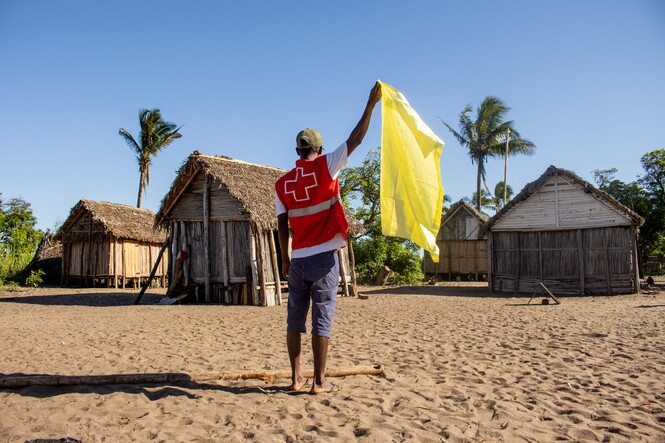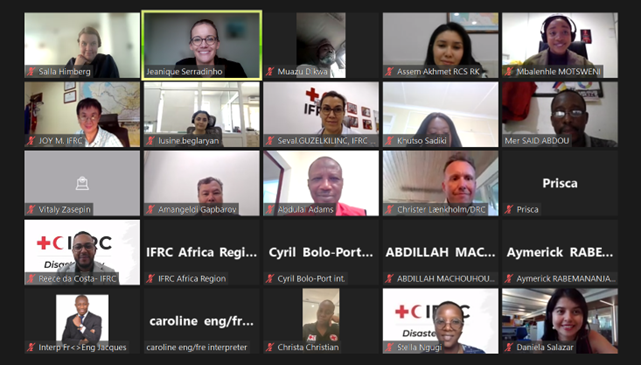
On 6 August 2024, IFRC Disaster Law hosted a virtual town hall to clarify how DRM laws and policies support Early Warning Early Action (EWEA) and shed light on National Societies’ journey in contributing to developing these frameworks.
The session set the scene with an overview of EWEA and the EW4ALL initiative before showcasing the Disaster Risk Governance Guidelines: Strengthening Laws, Policies and Plans for Comprehensive Disaster Risk Management (the DRM Guidelines) and its relevance for EWEA policy drafting. The audience was taken through each component of an effective early warning system: developing disaster risk knowledge; detection, monitoring analysis and forecasting hazards; warning dissemination; and ensuring preparedness and response capabilities.
Following these presentations, South Sudan Red Cross (SSRC) and Malawi Red Cross Society (MRCS) shared their experiences and highlighted what can be achieved through with regards to strengthening legal and policy frameworks for EWEA by leveraging the auxiliary role.

Mr. Lowila Daniel, Legal Adviser of SSRC, stated that “South Sudan Red Cross has been a key partner in the development of the DRM Bill. Through the Bill, we are recognised as a member of the Early Warning technical working group that will establish strong multi-hazard early warning systems. Also, having a seat at the DRM Council, the SSRC is involved in the development and implementation of DRM policies.”
Ms. Prisca Chisala, Director of Programmes and Development of the MRCS, mentioned that “Together with the Department of Disaster Management Affairs, the MRCS contributed to the development of the DRM Act, which includes provisions on EWEA. Recently, as a member of the EWEA working group, we supported the elaboration of the Malawi EWEA Road Map. Ultimately, we are engaging in common causes to protect our communities."
Now, more than ever before, National Societies are determined to deliver their mandate for communities, including through disaster laws. Indeed, as key actors in the domestic implementation of the Early Warnings for All (EW4ALL) initiative, they provide support to their respective public authorities in strengthening the legal frameworks for enhanced climate resilience. Therefore, it is essential to foster best practices across the Red Cross Red Crescent network to identify the best paths to achieve common goals.